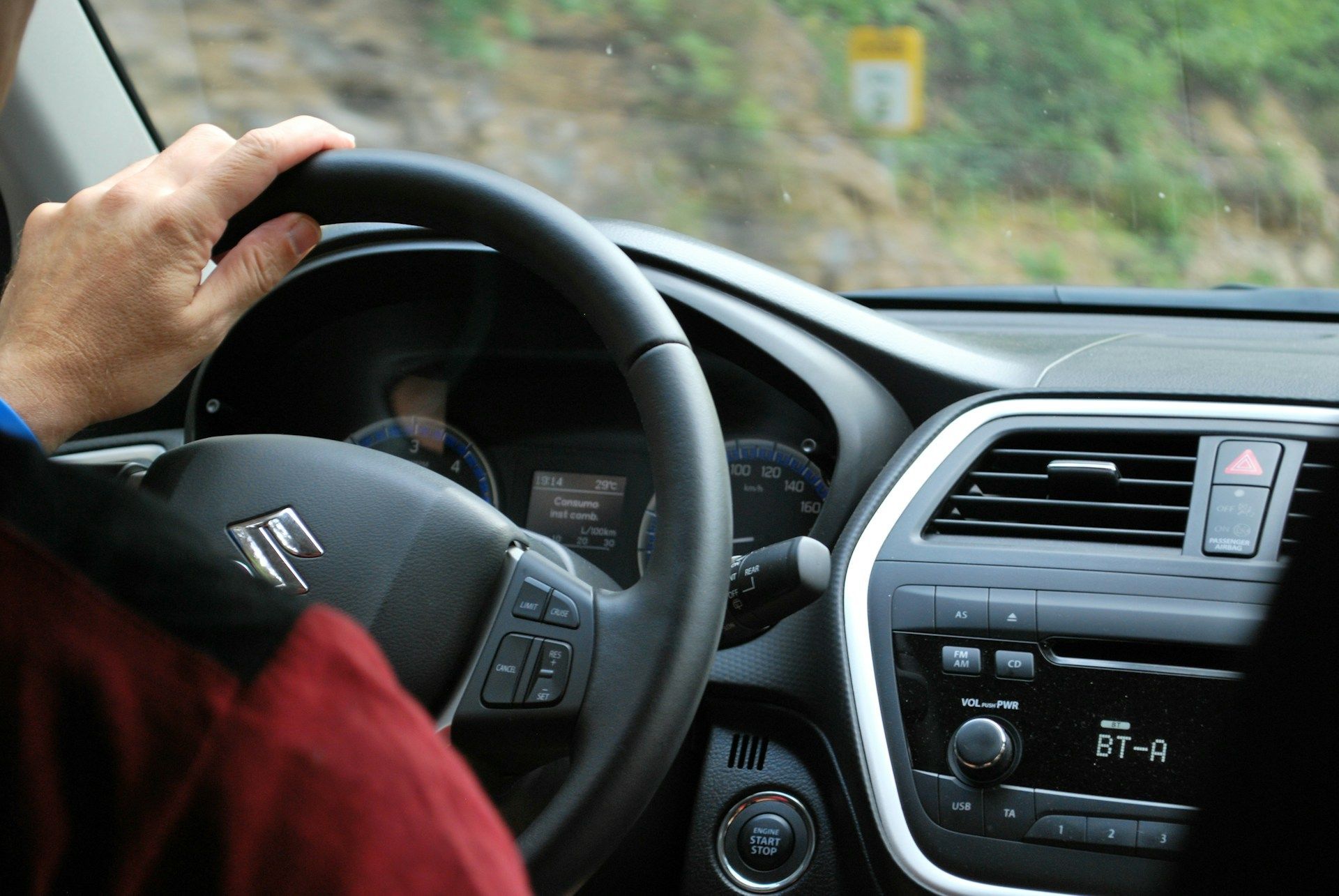Let's talk about your case
You can schedule a call with one of our lawyers anytime. Call today and get the help you need.
Or fill out our online form, and we will respond within 24 hrs.
Credits - Don't Give Entitlements Away
Why assuming a credit applies may leave entitlements on the table.
Fact Scenario: After several years of managing an accident benefits claim your client reaches the status of catastrophic impairment. He was the front seat passenger of side by side recreational vehicle. The side by side flipped while traveling on a trail and the client was thrown from the machine. The vehicle was insured by its owner. Your is unable to work since. You brought a tort claim against the driver of the side by side. Your client started an Accident Benefits claim through an insurer. He received various accident benefits, including medical and rehabilitation benefits and income replacement benefits. Your client was unable to return to work after the accident and has not worked since. You represent him with respect to her tort claim against the at-fault driver who is imposing several credits. You’re tasked with knowing which one’s the at fault driver is entitled to.
1. Who has the onus?
The onus of proof to establish the entitlement to payment of benefits rests with the defendant.
2. What are the statutory authorities?
The relevant subsections of 267.8 of the Insurance Act, R.S.O. 1990, c. I.8, state as follows:
267.8 (1) In an action for loss or damage from bodily injury or death arising directly or indirectly from the use or operation of an automobile, the damages to which a plaintiff is entitled for income loss and loss of earning capacity shall be reduced by the following amounts:
1. All payments in respect of the incident that the plaintiff has received or that were available before the trial of the action for statutory accident benefits in respect of the income loss and loss of earning capacity.
2. All payments in respect of the incident that the plaintiff has received or that were available before the trial of the action for income loss or loss of earning capacity under the laws of any jurisdiction or under an income continuation benefit plan.
3. All payments in respect of the incident that the plaintiff has received before the trial of the action
under a sick leave plan arising by reason of the plaintiff's occupation or employment. 1996, c. 21, s. 29
...
(4) In an action for loss or damage from bodily injury or death arising directly or indirectly from the use or operation of an automobile, the damages to which a plaintiff is entitled for expenses that have been incurred or will be incurred for health care shall be reduced by the following amounts:
1. All payments in respect of the incident that the plaintiff has received or that were available before the trial of the action for statutory accident benefits in respect of the expenses for health care.
2. All payments in respect of the incident that the plaintiff has received before the trial of the action under any medical, surgical, dental, hospitalization, rehabilitation or long-term care plan or law. 1996, c. 21, s. 29
...
(6) In an action for loss or damage from bodily injury or death arising directly or indirectly from the use or operation of an automobile, the damages to which a plaintiff is entitled for pecuniary loss, other than the damages for income loss or loss of earning capacity and the damages for expenses that have been incurred or will be incurred for health care, shall be reduced by all payments in respect of the incident that the plaintiff has received or that were available before the trial of the action for statutory accident benefits in respect of pecuniary loss, other than income loss, loss of earning capacity and expenses for health care.
3. Case Law
Following the jury verdict of the action Gilbert v. South, 2014 ONSC 3485, 2014 CarswellOnt 8156 (Ont. S.C.J.), affirmed by 2015 ONCA 712, 2015 CarswellOnt 16284 (Ont. C.A.). The Court provided a review of the principles relating to the application of s. 267.8 of the Insurance Act in [para. 9]:
Not surprisingly, the provisions of s.267.8 have been the subject of judicial consideration on a number of occasions. In that regard, general principles relating to their application now would seem to include the following:
The provisions operate as an exception to the otherwise applicable general common law rule relating to a litigant's recovery of overlapping compensation from “collateral” sources. Their object is to prevent, in the particular circumstances indicated therein, a “double recovery” by a plaintiff. The provisions assume that the plaintiff has obtained, through the litigation, damages covering the same loss otherwise covered by the collateral benefits; e.g., through recovery of funds necessary to purchase services required in the future. However, concern to ensure mandated prevention of such double-recovery is balanced by concern that a plaintiff should receive full compensation and not recover less than that to which he or she is entitled; i.e., by being subjected unfairly to deductions based on collateral benefit entitlements that are in doubt and/or which may not truly overlap with sums recovered in a tort judgment.
Statutory provisions of this nature therefore are strictly interpreted and applied. In particular: deductions from a plaintiff's damage award to prevent double recovery will be made only if it is absolutely clear that the plaintiff's entitlement to such collateral benefits is certain, and that the plaintiff received compensation for the same benefits in the tort judgment, (as “apples should be deducted from apples, and oranges from oranges”). Evidence of “likelihood” and “probability” in that regard is not enough to warrant a deduction. Rather, a “very strict onus of proof” applies in relation to such matters, and it must be “patently clear” that the preconditions for an appropriate deduction have been established. If there is uncertainty as to a plaintiff's receipt of such benefits, the value of the benefits entitlement, and/or the extent (if any) to which recovered tort damages relate to the same type of expense covered by the benefits received, matters are not “beyond dispute” in the sense required for a deduction, and no deduction should be made.
The Court of Appeal stated [para. 48]:
In summary, the trial judge could not accurately determine what, if any, portion of the jury's future care costs award mirrored expenses that Gilbert was entitled to claim under his accident benefits policy. He therefore dismissed York Fire's motion for relief under s. 267.8 of the Insurance Act.1 He did not err in doing so. I would not give effect to this ground of appeal.
A motion to reduce damages to prevent double recovery was dismissed in Hoang (Litigation Guardian of) v. Vicentini, 2012 ONSC 6644, 2013 CarswellOnt 660 (Ont. S.C.J.), where the infant plaintiff was awarded over $680,000 for future medical treatment, rehabilitation, attendant care and home maintenance. The defendant argued that an order reducing damages for future health care and other pecuniary losses was appropriate due to the payments available from SABS. The Court reviewed subsections 267.8(4), 267.8(9), 267.8(10) and 267.8(12) of the Insurance Act, and held that [para. 27–29, 31–36]:
... The case law is clear that a deduction from a Plaintiff's damage award to prevent against double recovery will only be made if it is absolutely clear that the Plaintiff's entitlement to the future accident benefits is certain and the Plaintiff received compensation for the same benefits in the tort judgment. The jury award was for future expenses only.
In Chrappa v. Ohm (1998), 38 O.R. (3d) 651 (Ont. C.A.), the Court considered whether the present value of future disability benefits ought to be deducted from the damages award. Although this case was decided under different legislation, the analysis is helpful. The Court considered what is meant by the word “entitled” and stated, at p. 657:
Thus, in my view, the jurisprudence supports the view that where the concept of entitlement to future long-term insurance benefits is used as a basis for reducing the plaintiff[']s damage recovery it must be strictly interpreted to require that it be beyond dispute that the plaintiff qualifies for these future payments in every respect.
The court was concerned that if the payment of future benefits was uncertain, it would be unfair to deduct them from a Plaintiff's damages award as the Plaintiff would recover less than he or she was entitled to. Clearly, persuasive evidence must be before the Court to demonstrate that it is patently clear the Plaintiff qualifies for the future benefits. It is not sufficient that there be a “likelihood” or “probability” that the future benefits will be received.
The provisions in the legislation assume that the judgment will be paid and, therefore, that the Plaintiff will have the funds to purchase services that are necessary in the future. If the Plaintiff were then to receive SABS payments to cover the costs of the items, there would be double recovery, which is what the wording of the sections of the Insurance Act is intended to prevent.
...
On the facts presently before me, there is no certainty that the judgment will be paid so that it can be said Christopher will fully recover his damages. If the judgment is not paid, Christopher will need the funds from the SABS to purchase the various items he will need in the future. There will be no double recovery.
Another difficulty with the argument advanced by the Defendant Hoang is that it is not clear from the jury answer what amount is to be deducted as the value of the accident benefits. They found that the sum of $684,228.22 was to be awarded to Christopher for future expenses, but this was comprised of five different categories: medical treatment; rehabilitation; attendant care; housekeeping; and home maintenance. It is not clear what amount is to be allocated to the individual categories. The case law is clear that in order for a deduction to be made, the amount must be deducted from the same type of expense.
CONCLUSION: Deductions to prevent double recovery from a plaintiff's damages award in a tort action will only be made if it is absolutely clear that the plaintiff's entitlement to such benefits under the Statutory Accident Benefits are certain and that the plaintiff received or will receive compensation for the same benefits in the tort action. If there is any uncertainty with respect to the plaintiff's receipt of such benefits, the value of the benefits he is entitled to or the extent to which the recovered tort damages relate to the same type of expense covered by the SABS, then no deduction should be made.
Let's talk about your case
You can schedule a call with one of our lawyers anytime. Call today and get the help you need.
Or fill out our online form, and we will respond within 24 hrs.
Thank you for contacting us.
We will get back to you as soon as possible. You can also book using this link: Personal Injury Booking Page
Please try again later
Related Blog Posts
Practice Areas
QUICK LINKS
CONTACT US
Tel: (613) 505- 5025
Fax: (613) 234-5852
info@wvgblaw.com
200-2571 Carling Avenue
Ottawa, Ontario
K2B 7H7
SERVICES
RECENT BLOG POSTS














